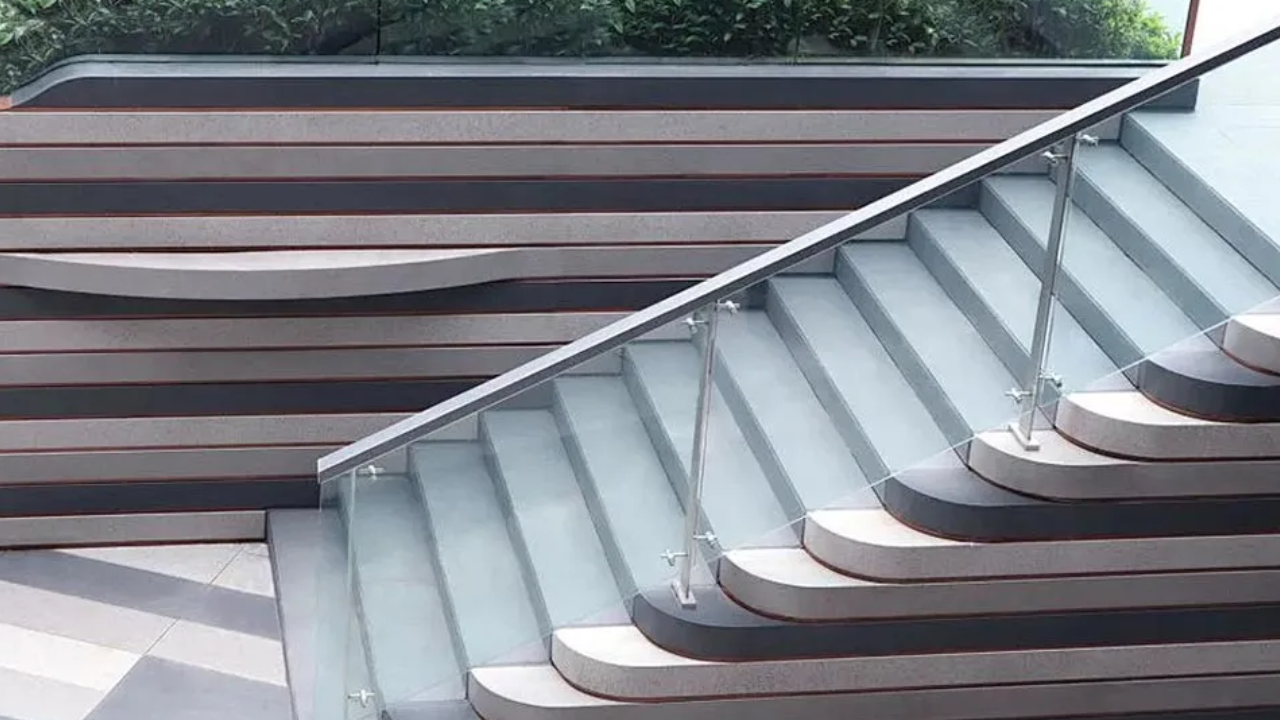Glass balcony balustrades have surged in recognition due to their dual appeal, they decorate the visual aesthetics of architectural designs while supplying terrific environmental advantages. In a technology where sustainable construction practices are paramount, the choice of substances, including glass, can profoundly influence a structure’s ecological footprint. Those balustrades optimize natural light penetration, decreasing reliance on synthetic lighting and thereby curtailing strength intake and related greenhouse gas emissions.
Additionally, they boast splendid thermal insulation properties, helping to maintain indoor temperatures throughout the year. Furthermore, the durability of glass balcony panels ensures lengthy-term use with minimal maintenance necessities, contrasting with conventional materials that could go to pot through the years. Glass is also distinctly recyclable, helping to meet financial system standards by enabling reuse in various packages.
Environmental Benefits of Glass Balcony Panels
Here’s how glass balcony panels make contributions to environmental sustainability:
Natural Light Optimization
Glass panels allow natural light to penetrate deeper into dwelling areas, reducing the need for synthetic lighting fixtures throughout the day. This strength-saving aspect no longer only lowers electricity intake but additionally decreases greenhouse gas emissions related to electricity technology. By optimizing natural light, glass panels promote an extra sustainable indoor environment.
Enhanced Thermal Performance
Modern glass panels are designed with thermal insulation that helps maintain indoor temperatures. Using decreasing warmness loss in winter and minimizing warmness advantage in summer, those panels make contributions to strength performance. This results in lower heating and cooling needs, thereby decreasing the general energy intake of homes geared up with glass balcony panels.
Durability And Longevity
First-rate glass panels are long-lasting and lengthy-lasting, requiring minimum maintenance over their lifespan. Not like some conventional construction materials that could degrade over time and require frequent alternatives, glass is resilient and maintains its structural integrity for decades. This durability reduces the environmental effect related to manufacturing, transporting, and casting off constructing materials.
Recyclability
Glass is a fairly recyclable material, making it an environmentally responsible choice for balcony panels. At the end of its useful lifespan, the glass may be recycled into new merchandise or reused in various programs, lowering the demand for raw substances and minimizing waste sent to landfills. This closed-loop method helps circular economy standards and reduces the environmental footprint of construction and renovation tasks.
Aesthetic Integration With Nature
Glass balcony panels decorate visual connectivity with outside environments, permitting residents to experience panoramic perspectives and connect with nature from the comfort of their homes. This integration promotes a sense of well-being and environmental attention among occupants, fostering a sustainable lifestyle mindset. Through encouraging appreciation of natural surroundings, glass panels contribute to environmental conservation efforts.
Sound Insulation
In urban areas, noise pollutants can impact the quality of life and environmental fitness. Glass balcony panels ready for sound insulation homes help lessen outside noise infiltration into dwelling areas, developing quieter and more non-violent environments. By mitigating noise pollutants, glass panels contribute to a more healthy and sustainable urban living experience.
Design Flexibility and Adaptability
Glass panels provide design flexibility that lets architects and builders incorporate sustainable features into their designs. From curved designs to frameless installations, glass balcony panels may be custom-designed to satisfy aesthetic alternatives without compromising environmental performance. This flexibility helps sustainable architecture practices and encourages innovation in building layout.
Sum Up
Glass balcony panels provide numerous environmental advantages that contribute to sustainable building practices. From electricity performance and natural light optimization to recyclability and noise reduction, glass panels play an important role in reducing the environmental impact of buildings while improving occupant comfort and well-being. As cities and communities prioritize sustainable development goals, the usage of glass in architectural packages continues to conform, promoting a greener and more eco-friendly built environment.
